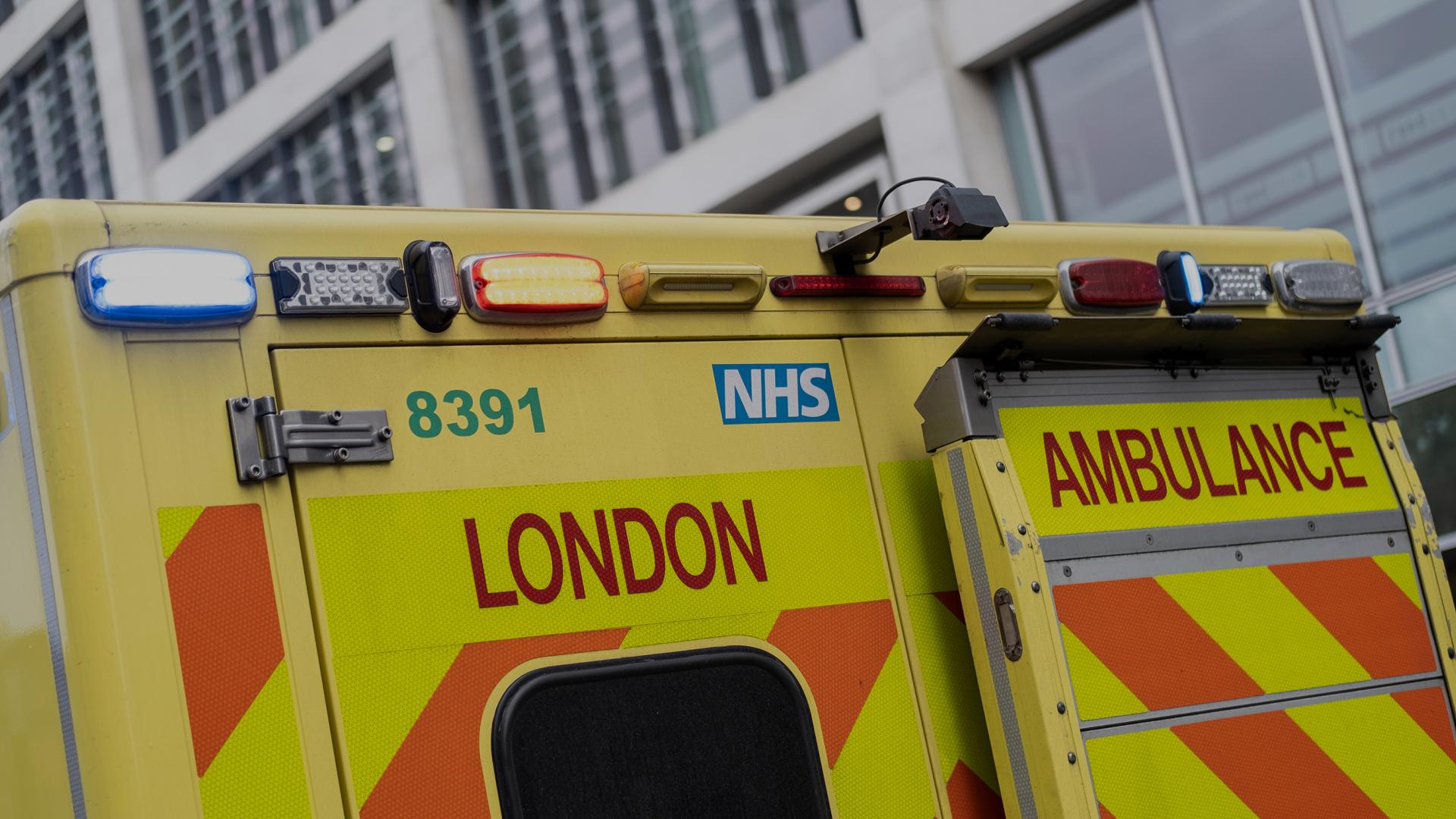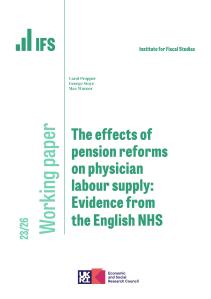Each year the NHS spends billions on training staff and students across a large range of health professions. A small fraction of that funding – the NHS Bursary – covers some of the tuition fees and living costs of medical and dental students.1 Given the workforce challenges facing the NHS, and the challenging fiscal context we as a country find ourselves in, it has never been more important to ensure that health education is funded and organised efficiently. A first step towards that would be scrapping the NHS Bursary, which does not provide value for money.
The NHS Bursary
The NHS Bursary is a grant for students of medicine or dentistry in the later stages of their course. For undergraduates in England, it covers full tuition fees and some living costs. For graduate-entry students, tuition fees are only partly covered. Both tuition fee and living cost grants replace government student loans that students would otherwise be eligible for.2
How much support a student receives depends in complex ways on their specific circumstances (the full rules run to more than 100 pages). Most students are eligible for between £10,000 and £14,000 in the final year of their course only, but some students receive substantially more, spread over more than one year. There are no up-to-date numbers available for the overall cost of the programme, but the available evidence suggests that it adds up to a bit more than £100 million per year. This amount can be expected to double in real terms by 2031 as places to study medicine or dentistry in England are set to nearly double under the NHS workforce plan from a baseline of 8,000 to around 16,000.3
Who benefits from the NHS Bursary?
Contrary to appearances, the NHS Bursary does not benefit medical students while they are at university, as it displaces student loan funding they would otherwise have been eligible for.4 Bizarrely, many students actually get substantially less up-front support under the NHS Bursary than they would get in the general student loans system, as maintenance loans to cover living costs are cut by more than the extra bursary is worth. For example, students from the poorest families living away from home and outside London are eligible for maintenance support worth £9,978 in the 2023–24 academic year in the general student loans system, but only for a total of £6,248 if they receive the NHS Bursary.
The ultimate beneficiaries of the NHS Bursary will be high-earning medical graduates in their 40s and 50s, when they can expect to have paid off their student loans. Without the NHS Bursary, these high-earning graduates would have larger loans, and therefore would be paying off their loans for longer – paying back more overall.
It is not obvious that this group needs financial support from the government. By the time the NHS Bursary affects their take-home pay in their 40s or 50s, many will be NHS consultants, who currently earn nearly £130,000 on average in the NHS. Many also have additional income from private practice. This puts average-earning NHS consultants in or near the top 1% of adults by earnings in the UK. Other high-earning medical graduates will have left the NHS in order to practise privately or abroad, or have built lucrative careers outside of medicine. It is hard to see why these groups should be first in line for taxpayer-funded handouts.
Notably, medical graduates with low earnings do not benefit from the NHS Bursary. The reason is that they will never pay back their full student loans, with or without the bursary. The bursary thus only affects how much is written off at the end of the student loan repayment period; their loan repayments will be the same either way.
What could justify extra grants for aspiring doctors?
The most obvious problem that a subsidy for medical graduates might address is a shortage of people who want to study medicine. However, there is no evidence at all that there is such a shortage. For this year’s medicine entry cohort, UCAS counted 26,820 applicants for around 10,000 places available across the UK; even more might apply if entry to medical courses was not known to be extremely competitive. So if that was the aim, the NHS Bursary is solving a problem we do not have.
It is also not addressing a problem we do have, which is retaining doctors who have finished medical school. The reason is that high earners benefit from the NHS Bursary whether they stay in the NHS or not, and indeed whether they stay in the country or not. In other words, part of the NHS Bursary will end up subsidising high-earning medical graduates who do not practise medicine, who practise medicine in the UK but outside the NHS, or who practise medicine in other countries.
The government has emphasised the need for extra financial support to ‘attract a diverse range of students onto healthcare courses’. In fact, given the higher living cost support in the general student loans system, scrapping the NHS Bursary might well lead to a more diverse intake of medical students. And while it is possible that the prospect of needing to take out larger student loans without the NHS Bursary could put some off studying medicine, the evidence from the 2012 student loans reform suggests that this effect would at most be small. In general, targeted support for students in the form of higher means-tested maintenance loans or grants will be more effective in attracting disadvantaged students than universal support for graduates.
Now is the right time to act
The best argument in favour of the NHS Bursary was always that the student loans system in place between 2012 and 2022 unfairly penalised those with high earnings who spent a long time in training. Excessive interest rates indeed meant that those who fit this description – doctors perhaps more than any other group – could (unless they repaid their loans early) expect to pay back tens of thousands of pounds more than they borrowed.
However, this is no longer the case, starting with this year’s university entry cohort, because student loan interest rates have justifiably been cut dramatically. As a result, high-earning medical graduates are set to gain around £20,000 on average from student loans reform. Given this windfall, it would make sense to close the NHS Bursary for this cohort. Even without the bursary, 2023-entry medical students will likely still be better off on average than their immediate predecessors.
A better use of the money spent on the NHS Bursary would be to improve pay and working conditions of medical graduates who actually do work in the NHS. For example, the (post-tax) take-home pay of all the roughly 75,000 junior doctors in England could rise by around £100 a month if the NHS bursary was scrapped – not a huge amount, but perhaps enough to convince at least a few doctors to stay put.5
Scrapping the NHS Bursary would be relatively small change: about £100 million in savings are tiny compared with an overall NHS England budget of £160 billion. But the government need not stop here. For example, a case could also be made to abolish the direct government subsidy to universities for medical and dental school places, which costs around £300 million a year, and instead charge higher tuition fees. Doctors working for the NHS could again be compensated through higher salaries. In any case, getting rid of the English NHS Bursary and using the funds to boost junior doctor salaries would be an excellent first step towards a more efficient funding model for health education.










